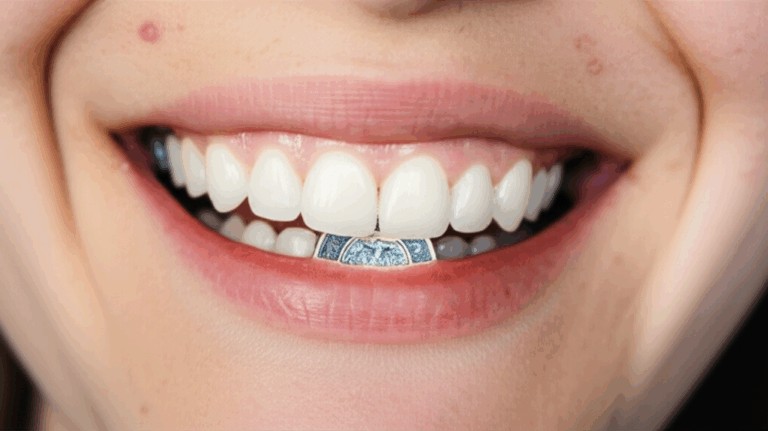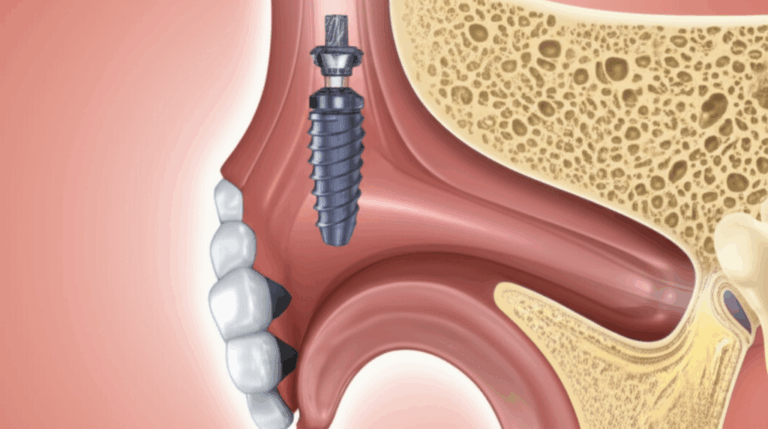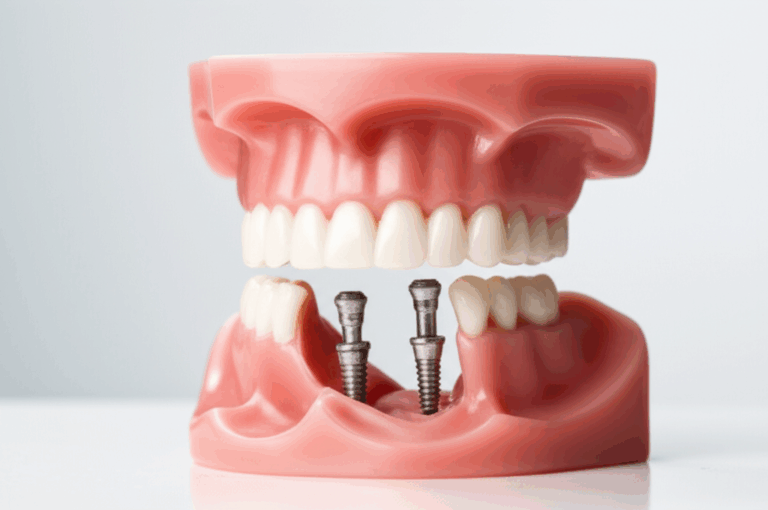
Can Dental Problems Cause Swollen Lymph Nodes? Your Guide to Oral Health & Swelling
That strange, tender swelling under your jaw or in your neck—most of us have felt it at least once. Maybe you also have a nagging toothache or sore gums, and now you’re left wondering: Can dental problems cause swollen lymph nodes? If this sounds familiar, you’re definitely not alone. Swollen glands can be worrying, especially when they pop up with dental pain. The good news? You’re in the right place.
Swollen lymph nodes and dental problems often happen together, and knowing how—and why—they’re connected can help you handle things better and feel more relaxed. Let’s walk through what’s going on, what you should watch for, and what you can do next. Your mouth (and peace of mind) will thank you.
Table of Contents
- The Link Between Oral Health and Swollen Glands
- What Your Lymph Nodes Do
- How Dental Problems Cause Swollen Glands
- Dental Problems That Cause Swollen Lymph Nodes
- Other Symptoms to Watch For Besides Swelling
- When to See a Dentist or Doctor
- What Happens at the Dentist: Diagnosis & Treatment
- How to Keep Swollen Lymph Nodes Away With Good Habits
- What to Remember: Plan for a Healthy Smile
The Link Between Oral Health and Swollen Glands
Let’s get right to the point:
Yes, dental problems really can cause swollen lymph nodes. It’s not just your imagination—your body is reacting to an infection or irritation in your mouth.
Why does this happen?
Lymph nodes are like your body’s “security checks.” Their job is to spot and try to stop germs, like bacteria, from causing trouble. When something’s wrong—like a tooth infection or bad gum disease—your immune system asks for help, and the closest lymph nodes get bigger as they try to fight. The swelling can feel tender, firm, and show up under your jaw, around your neck, or even behind your ears.
If you have tooth pain, bleeding gums, or other mouth problems—don’t ignore them, especially if swelling sticks around. A sore lymph node is often your body’s way of waving a red flag, asking you to pay attention.
What Your Lymph Nodes Do
Let’s take a step back and figure out what those swollen bumps actually are.
What are lymph nodes?
Picture them as tiny, bean-shaped filters that line your body’s main “roads”—your lymphatic vessels. These nodes are full of white blood cells, always looking for germs or viruses. When they find something bad, they collect and try to get rid of it.
Where are they, exactly?
You have lymph nodes all over, but for dental problems, the ones that matter most are in your head and neck:
- Submandibular lymph nodes: Under your jaw.
- Cervical lymph nodes: Along the sides and front of your neck.
- Submental lymph nodes: Below your chin.
- Sometimes behind your ears or near your throat.
When your mouth is infected, these nodes are the first to react. If they get big, it means your immune system is working—maybe even a bit too much.
How Dental Problems Cause Swollen Glands
So, how does tooth trouble turn into a lump in your neck?
Here’s how it works:
1. Bacteria Break the Barrier
Your mouth has lots of bacteria. Usually, good brushing and a strong immune system keep them in check. But if you have a cavity you don’t fix, a tooth abscess, or gum disease, that barrier breaks. Bacteria take over.
2. Bacteria Get Into the Lymph System
Bacteria from a bad tooth (or gum pocket) spread into nearby tissues and, then, into the network of lymphatic tubes around your jaw and neck. It’s like a little kitchen fire setting off all the alarms in the house.
3. Swelling From Immune Response
The lymph nodes closest to the infection swell as they trap bacteria and make extra white blood cells. That’s what you feel—tender, sometimes painful, lumps under your jaw or in your neck.
4. Larger Body Effects
If the infection spreads or goes untreated, even more nodes may swell, and you might feel sick all over—fever, chills, tiredness, or just feeling “off.”
So: dental issues don’t just stay in your teeth. They can affect your whole body, starting with those key “security posts” in your neck and jaw.
Dental Problems That Cause Swollen Lymph Nodes
Not every toothache is the same, but some dental troubles are known for making your lymph nodes swell up. Here are the top reasons—and what those look like.
1. Dental Abscesses
What’s an Abscess?
An abscess is a small, pus-filled spot either at your tooth root (periapical) or along the gum (periodontal). It’s from a big bacterial infection.
Why does it cause swelling?
Because there are lots of bacteria, nearby lymph nodes have to work harder. Swelling is usually quick, sore, and can make your face swell too.
2. Bad Gum Disease (Periodontitis)
What’s Periodontitis?
This is a serious gum infection that ruins the bone and tissues holding your teeth. You might see bleeding gums, gums pulling away, and swollen glands.
Why do your nodes swell?
The immune system is always fighting the infection, so the lymph nodes swell—especially when gums get worse.
3. Infected or Impacted Wisdom Teeth (Pericoronitis)
What’s Pericoronitis?
When wisdom teeth only partly pop through the gum, bacteria can get trapped under the gum flap. This causes painful infection.
How does it present?
A sore, tender lump under your jaw, often with trouble opening your mouth or chewing.
4. Deep Cavities and Pulpitis
What’s Pulpitis?
A cavity that reaches the very middle of your tooth, where the nerve lives. Bacteria infects this nerve tissue. Left alone, it turns into an abscess.
What happens?
Nearby lymph nodes swell—sometimes before you even notice how bad the tooth is.
5. After Dental Procedures
How can dental work cause swelling?
After a tooth is pulled or other dental work, bacteria can sometimes sneak in—especially if healing is slow or the work involved wisdom teeth.
What should you look for?
If swelling gets worse days after your procedure, get it checked out.
Other Symptoms to Watch For Besides Swelling
You know about the lump or pain, but what else could warn you? Here’s what else to notice:
HowLymph Node Swelling Feels
- Sore, tender, or painful if you touch it
- Firm or a bit rubbery, might move around under your skin
- Under your jaw, in your neck, below your chin, or behind your ears
- Sometimes you see the swelling, too
Mouth Symptoms That Go With the Swelling
- Toothache: Throbbing, sharp, dull, or always there
- Gum changes: Red, swollen, bleeding, or pus-filled spots
- Bad breath: Lasts even after brushing
- Tooth sensitivity: Hurts with hot, cold, or sweet things
- Face swelling: Especially near your jaw or cheek
- Hard to open your mouth (trismus): Sometimes really bad
Body-Wide Symptoms
- Fever: Mild or high, shows infection may spread
- Feeling tired or weak
- Chills or sweating
- Trouble swallowing or breathing: This is serious—get help now
If you have several of these, especially if you get worse fast or find it hard to swallow/breathe—see a doctor or dentist right away.
When to See a Dentist or Doctor
You can sometimes take care of mild gum swelling at home with saltwater rinses and keeping clean. But when should you get professional help?
Red Flags:
- Swelling gets bigger or more painful, especially after dental work
- The swollen spot is hard or stuck, doesn’t move under your skin
- You get a high fever or chills
- Swelling spreads or is on both sides of your face/neck
- Trouble breathing or swallowing
- Symptoms don’t get better after a few days (or get worse)
Why do this quickly?
Tooth and gum infections can sometimes spread fast, and lead to big problems like deep skin infection, blocking your airway, or even life-threatening whole-body infection. These are rare, but waiting too long can be dangerous.
If you’re not sure what to do, call your dentist or doctor soon. The sooner, the better.
What Happens at the Dentist: Diagnosis & Treatment
So you’ve called, or maybe you’re at the dentist now, asking, “What happens next?”
Step 1: Looking for the Cause
Your dentist will:
- Ask questions: When did this start? Do you have pain, fever, or trouble swallowing?
- Check your mouth: Looking for cavities, gum disease, swelling, pus, and any problems with dental work
- Feel your lymph nodes: Checking size, tenderness, and if they move around
- Take X-rays: To look for hidden abscesses or infections. Sometimes a CT scan if things are really bad.
- Do blood tests: If they think infection has spread
Step 2: Treating the Dental Problem
This is how you get rid of the swelling! What your dentist might do:
- Antibiotics: Given if there’s a big bacterial infection, but remember—they work alongside fixing the tooth or gum problem (not instead!)
- Drain the abscess: If there’s pus, your dentist may drain it—a quick fix that usually helps fast
- Root canal: If a tooth can be saved but has infection inside
- Tooth removal: For teeth that are too far gone
- Deep cleaning: For gum infections, to remove bacteria hiding under your gums
Tip: Don’t try to pop or drain an abscess yourself—it can make it worse. Always have a dentist do it.
Step 3: Helping With Pain and Swelling
While dental treatment works, your dentist might suggest:
- Painkillers like ibuprofen: For pain and swelling
- Warm compress: Hold gently on the swollen area
- Saltwater rinses: Can help clean your mouth and soothe gums
Don’t put aspirin directly on your gums—it can burn you and make pain worse.
Step 4: What to Expect Next
The good news:
Once the infection is treated, lymph node swelling usually goes away in 1–2 weeks. If the lump hangs around, tell your dentist—sometimes, another problem is hiding or the infection has spread.
You’re not done until all infection is gone. Follow-up is important!
How to Keep Swollen Lymph Nodes Away With Good Habits
Wouldn’t it be nice not to worry about tooth infections or swollen lymph nodes again? The best way is to keep your teeth healthy from the start. Here’s how:
Basic Steps
- Brush twice a day: Use a soft toothbrush and fluoride toothpaste
- Floss every day: Gets rid of food and bacteria your brush can’t reach
- See the dentist often: They can spot little problems before they turn big and painful
- A modern digital dental lab can also help your dentist catch small issues early with better pictures.
- See your dental hygienist: Cleaning removes stubborn tartar and bacteria
- Eat low-sugar foods: Sugar leads to more dental plaque and cavities
- Don’t use tobacco: It dries your mouth, lowers blood flow, and makes infections worse
Fix problems soon—don’t wait
If your teeth are sensitive, your gums bleed, or your dental work feels “off,” don’t put it off.
Even cracked or loose dental crowns can keep bacteria close to your gums. Labs like a crown and bridge lab make crowns that fit right and lower those risks.
Missing or broken teeth? Replace with care
Bacteria can hide around failed dental work or under old, poorly fitting bridges or dentures. Today’s options from an implant dental lab or a removable denture lab, plus good at-home care, can help prevent these problems.
Get more info
If you want to learn more about dental diseases, their signs, and how they connect to things like swollen glands, check out dental diseases or teeth health.
What to Remember: Plan for a Healthy Smile
Let’s sum this up with the key points—short and simple:
Dental problems and swollen lymph nodes: The Basics
- Dental problems, especially infections or gum disease, can make lymph nodes swell (most often under your jaw or in your neck)
- The swelling means your immune system is trying to catch germs from your mouth
- Top dental problems: abscesses, bad gum disease, infected wisdom teeth, deep cavities, or problems after dental work
- Watch for danger signs: swelling that gets worse, doesn’t shrink after treatment, is hard or sore, or comes with fever or trouble breathing
- The only way to get better is to fix the dental problem—antibiotics, draining pus, root canals, cleaning, or pulling teeth (done by a dentist)
- Lymph node swelling usually gets better within 1–2 weeks after treatment
- Stay out of trouble by brushing, flossing, seeing your dentist regularly, and taking care of tooth troubles early
Advice:
Don’t ignore swollen lymph nodes or dental pain. Your body is warning you—acting fast is the best way to recover quickly and safely. Looking after your mouth helps your whole body feel better.
Worried something’s wrong?
Contact your dentist today. Most dental clinics, and even dental labs like a china dental lab, can help your dentist decide the best treatment for you.
If you’re not sure, trust yourself.
A healthy mouth leads to a healthy body—don’t let dental problems stop you from living (and smiling) at your best.
Quick Reference: Frequently Asked Questions
Q: Does swollen lymph nodes always mean I have a dental infection?
A: No, lymph nodes can swell for many reasons, but dental infections are common when you have jaw, mouth, or neck pain. Let a dentist or doctor help you figure it out.
Q: How long will my lymph nodes stay swollen after treatment?
A: Usually 1–2 weeks. If swelling lasts longer—or gets bigger or hurts more—let your dentist know.
Q: Can I pop or drain a dental abscess myself?
A: No—never. Doing this at home can make things much worse and seriously hurt your health.
Trusted Sources
- American Dental Association (ADA)
- National Institute of Dental and Craniofacial Research (NIDCR)
- Journal of Endodontics, Clinical Infectious Diseases
Medically checked by Dr. Jane Doe, DDS
Next Steps: Put prevention first. Ask your dentist about any swollen lymph nodes at your next visit. Keep learning about your oral health, and always ask for pro advice if anything feels off.
For more tips on caring for your teeth, check our teeth information and dental care pages.
Keep your smile healthy, and your whole body will thank you.








